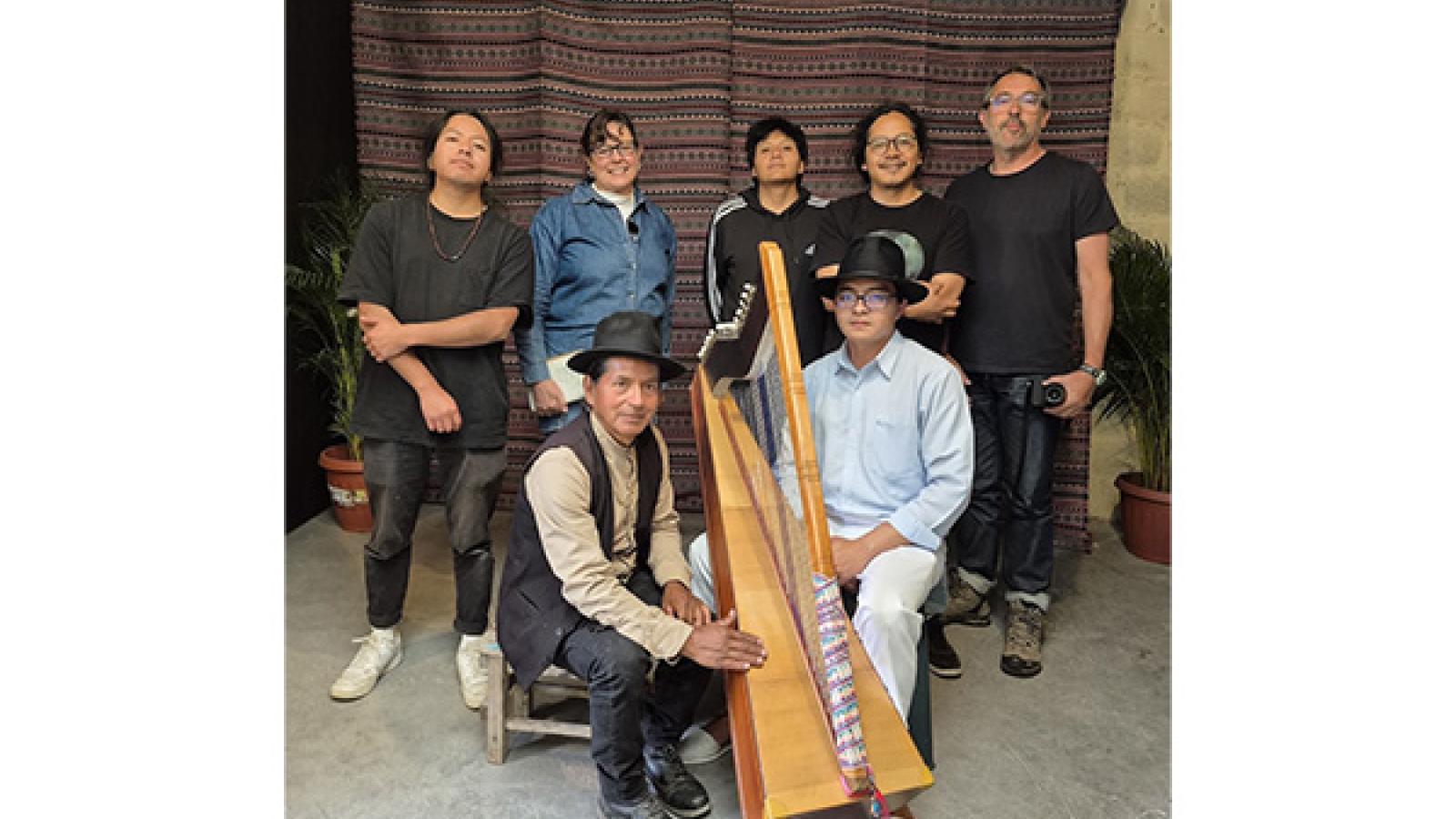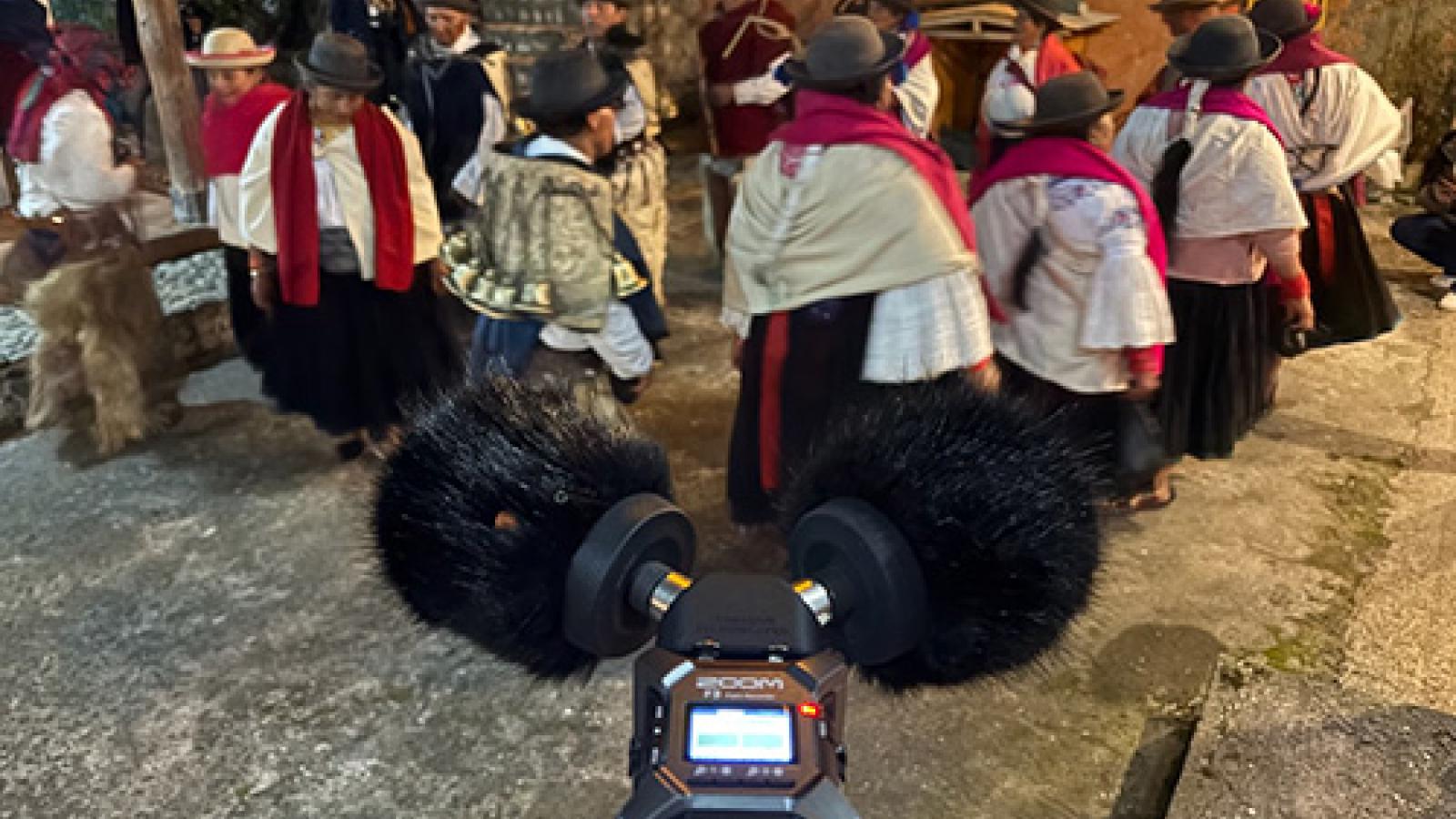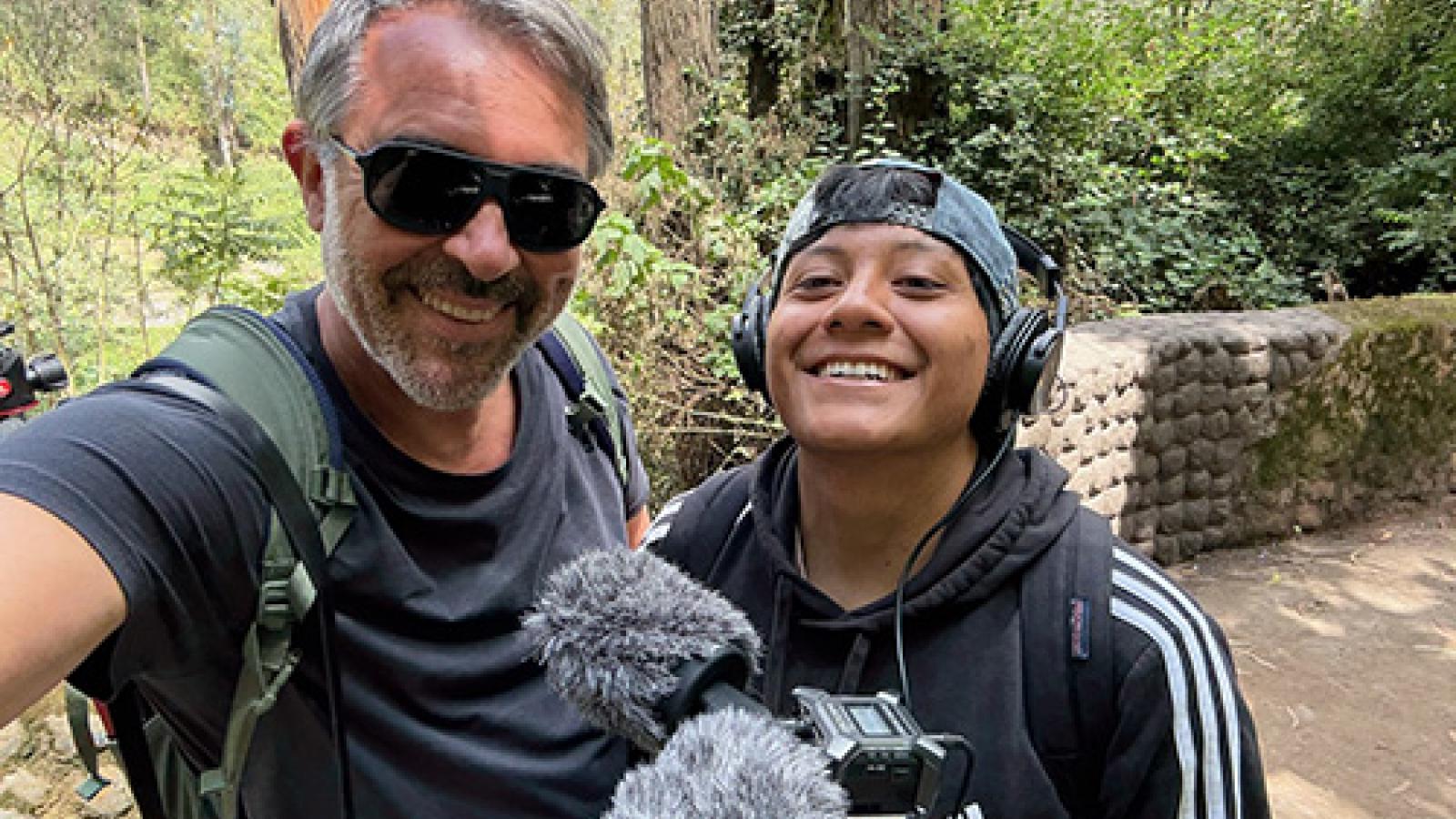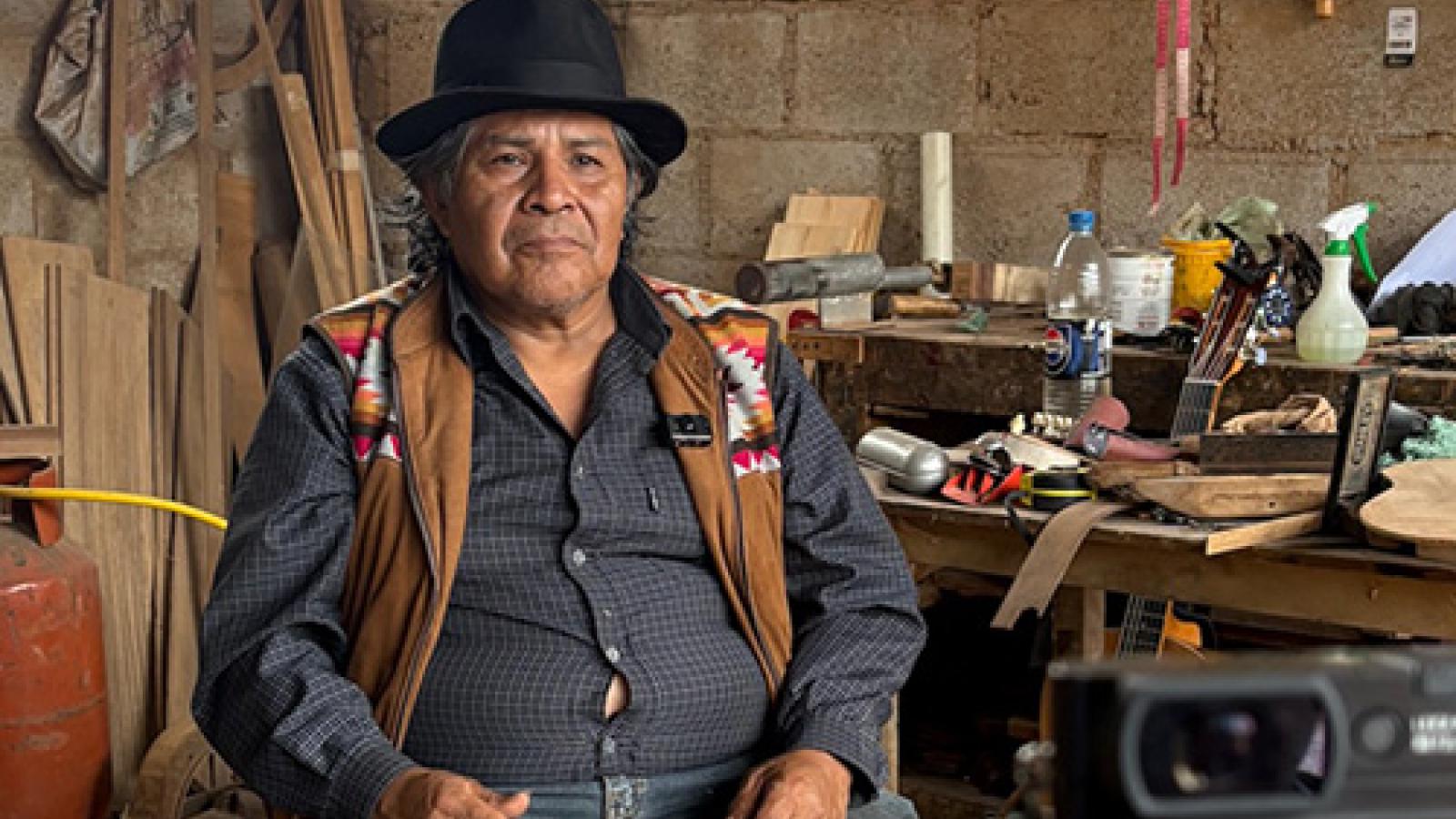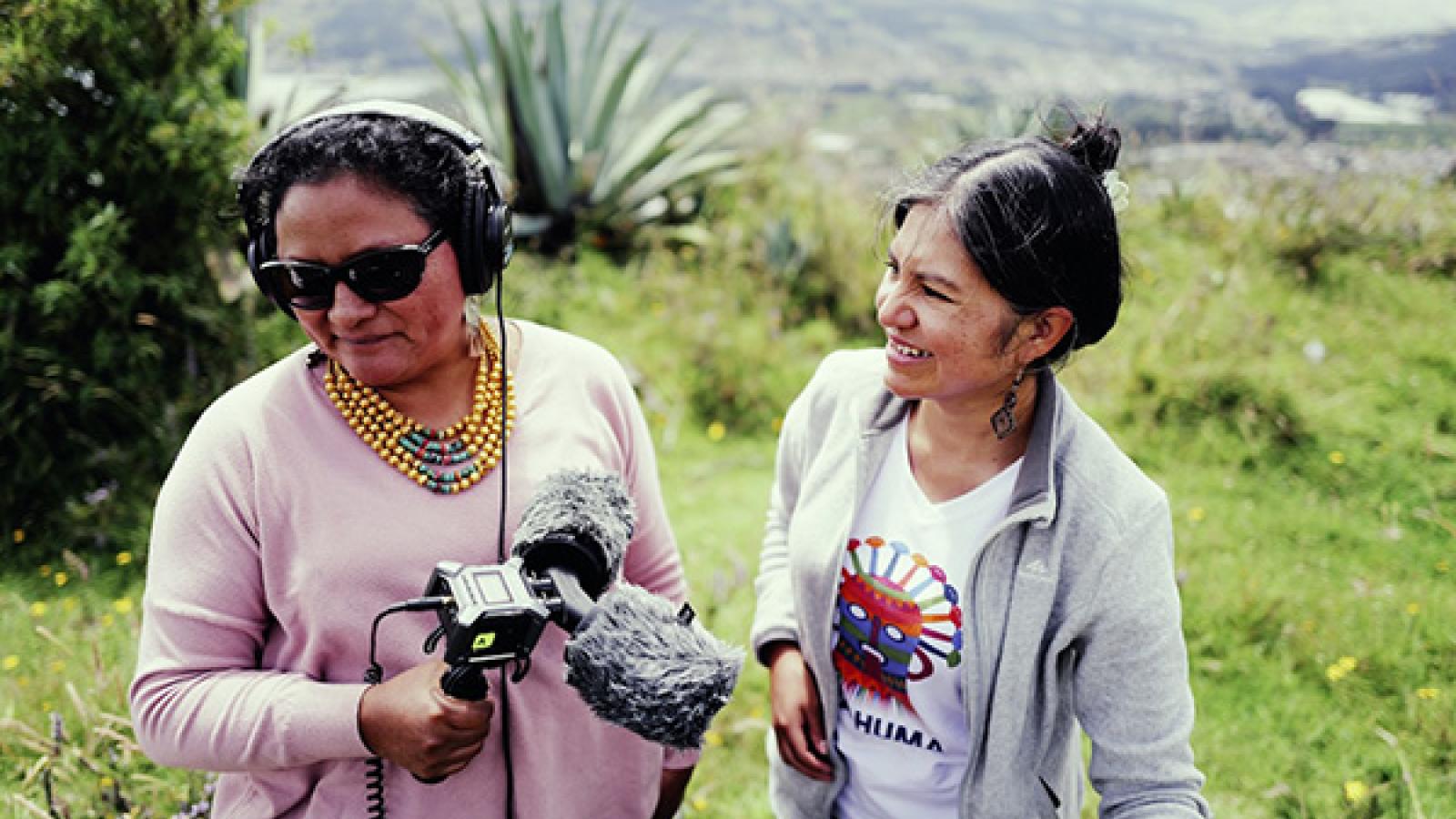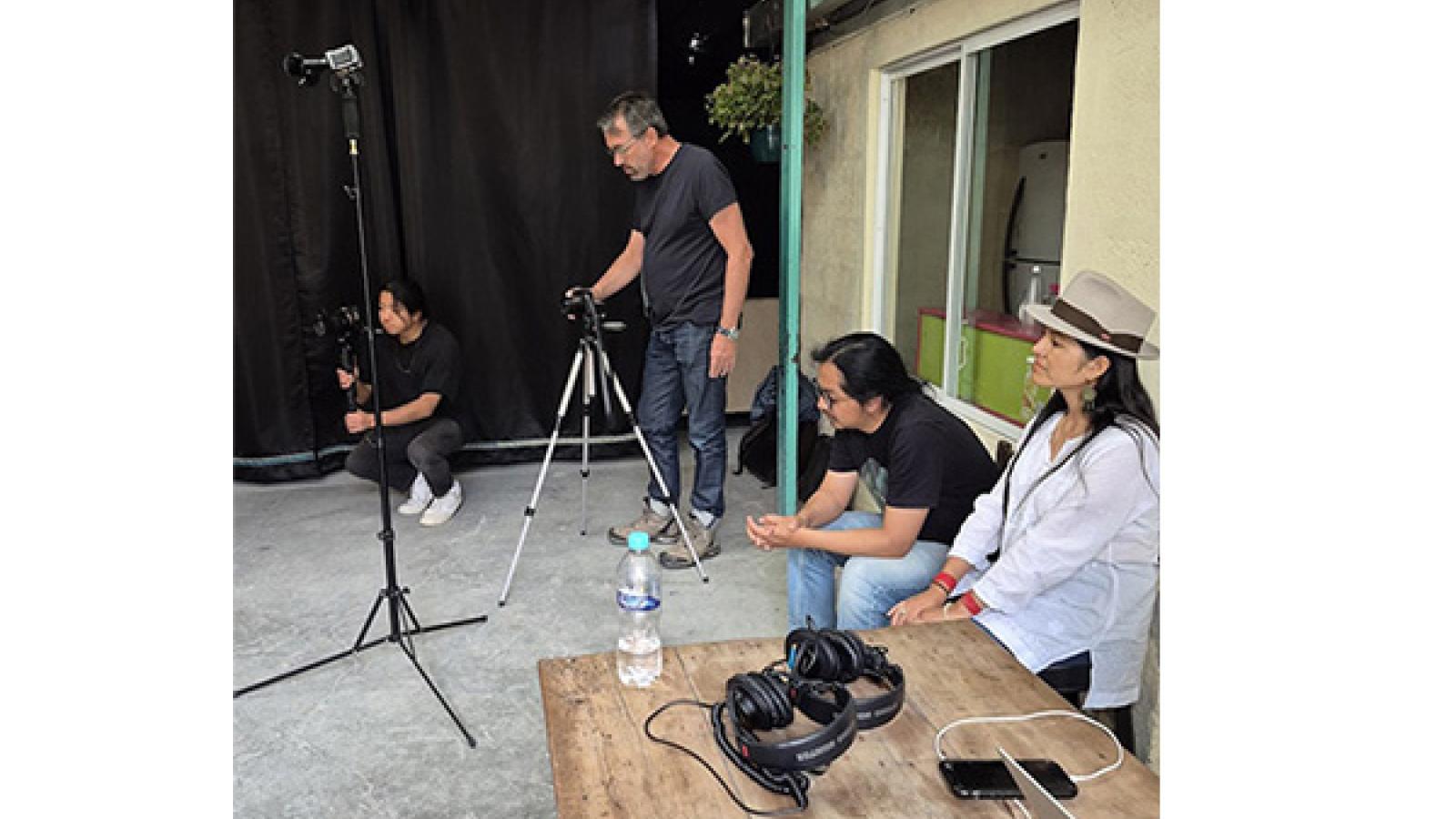Kichwa Otavalo Community Sound Archive ~ Summer 2025
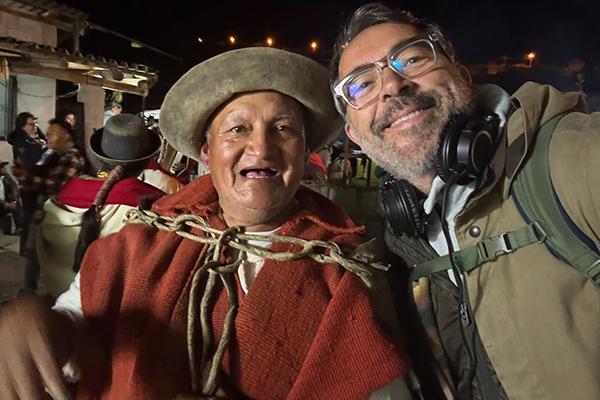
This summer (2025) Jean-Yves Munch and Michelle Wibbelsman embarked on a research collaboration supported through an Arts and Humanities Accelerator Grant to work with Kichwa Otavalo community partners in the northern Andean region of Ecuador for the creation of an audio register of local songs and traditional instrumental music.
An invitation from these communities to help document musical traditions in the area by way of a sound archive in the hands of the community itself at Escuela de Música Yarina (EMY) along with a prior interdisciplinary teamwork experience for a GAHDT Artist Residency with Kichwa Otavalo musician and composer Ati Cachimuel in 2023-2024 at MOLA in collaboration with ACCAD and CLAS prompted Wibbelsman and Munch to bring together their research interests and expertise once more. Munch’s specialization in on-location audio recording and spatial audio production complemented Wibbelsman’s long-term ethnographic involvement with communities in the area since 1995 and her current research on Indigenous transnational migration and musical diversity among Otavalan global diaspora communities.
The Kichwa Community Sound Archive project builds on a decade-long relationship between Ohio State and the Centro Intercultural Comunitario Yawar Wauki, a community partner umbrella organization in the region that has participated with OSU in a series of community-engaged research, production and programming. These strong intellectual connections developed over time have cultivated ongoing conversations, research collaborations, scholarly publications, student involvement and community engagement across various units and departments at Ohio State and beyond, and have brought the resources of our institution to bear on meaningful, impactful and sustained scholarly commitments with partnering Kichwa Otavalo communities as well as our campus communities and broader publics in the U.S.
Guided by the interests and priorities of this community partner and fundamentally designed to support, amplify and collaboratively contribute to their work, Munch and Wibbelsman worked intensively with a core team of administrators and technicians to capture on-location traditional musics in challenging acoustic settings. We recorded the Campanilleros de Caluquí—a group of octogenarians recognized by the state as intangible cultural patrimony of Ecuador—during a live processional festival; Andean harp, panpipes, violin and rondín (harmonica) players including an elderly mama rondinera (rare female harmonica player); a luthier who demonstrated bandolín, charango and guitar unique local tunings; ritual flute players; and a women’s choir among others.
Munch and Wibbelsman also conducted a series of workshops for interested public participants with three-way translation in English, Spanish and Kichwa (with a little French thrown in too!). These dynamic sessions covered an Introduction to recording--from preproduction to recording using Zoom H3 high definition recorders; Live capture in different acoustic scenarios with Earsight ORTF mics; Mastering and editing recordings using Reaper DAW; Syncing sound and video. In between workshops and recording sessions, we made time for processing data, archiving and storage, planning next steps, developing workflow documents for data management and on-site recording practices, and reflecting as a group on archival considerations in the context of a community-held repository including issues of access, copyright, and uses.
Creation of this audio register supports further studies of diverse tunings, acoustics and musical aesthetics across Kichwa communities as a basis for the eventual development of methods manuals and pedagogical methodologies. The Kichwa Otavalo Sound Archive also supports EMY’s objectives of promoting the development and transmission of traditional musical knowledge and songs in Kichwa as tools for social transformation and cultural resignification/revalorization. It provides the infrastructure for EMY’s vision of expanding research on Kichwa songs and instruments, techniques, forms of expression, and methods of transmission, and involving the entire community in the formation of musicians and the transmission of Kichwa language and musical practices to new generations.
Munch and Wibbelsman will continue to meet virtually with the Kichwa Otavalo Sound Archives team to gather feedback and jointly evaluate the impact, significance, challenges moving forward, and future possibilities of the sound archive. The hope is that we can build on the success of the 2025 project to compete for additional funding that will sustain the project for the next three to five years. Connections to an R1 institution like Ohio State will, in turn, allow EMY to pursue national and international grants as well.
We look forward to sharing the archive with the Ohio State community eventually when it goes live!
For more information on the Kichwa Otavalo Sound Archive, please feel free to reach out to wibbelsman.1@osu.edu or munch.30@osu.edu

